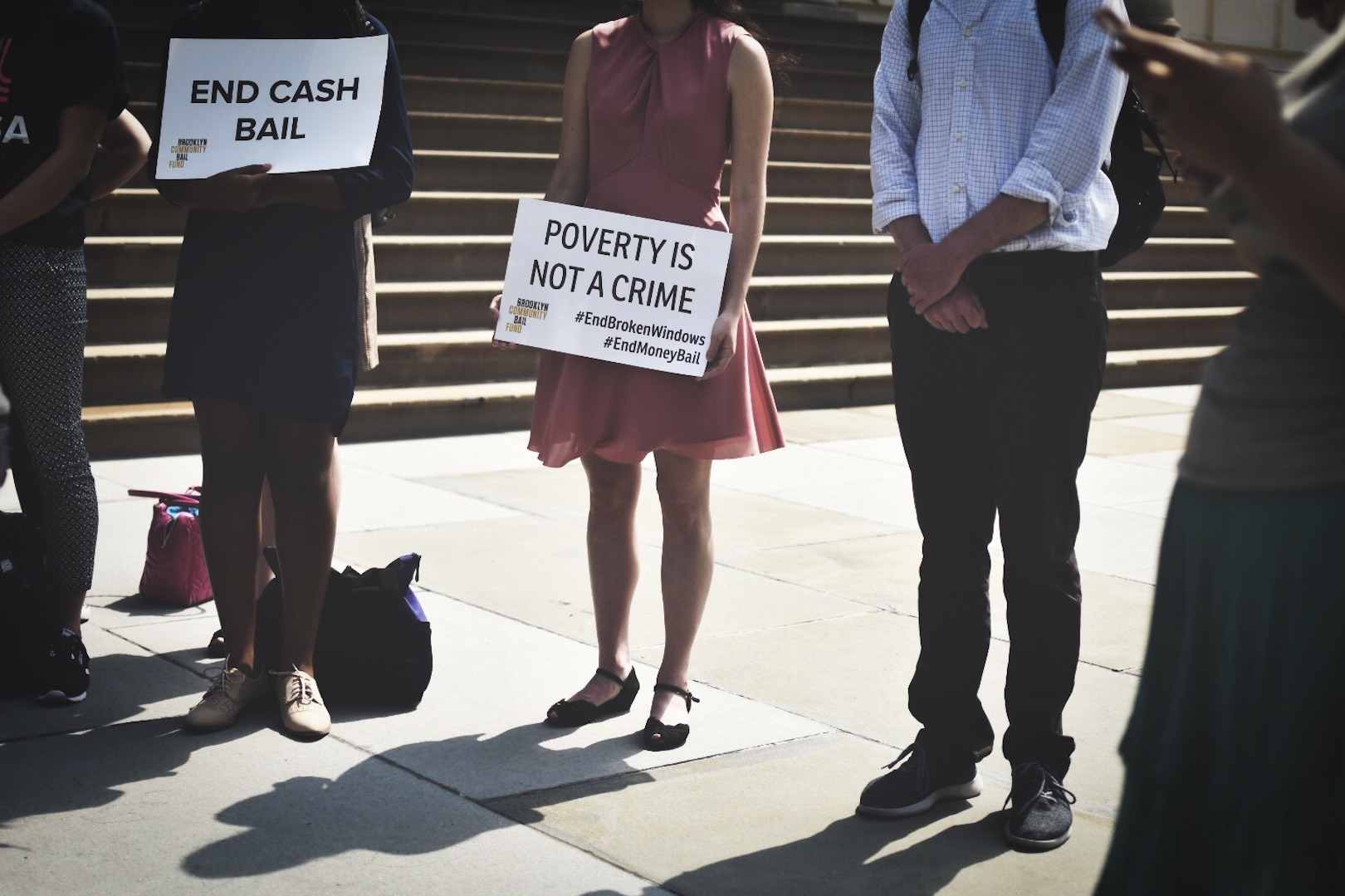Nation’s Largest Bail Fund Plans To Stop Bailing People Out Of Jail
The Brooklyn Community Bail Fund said it doesn’t want to ‘prop up an unjust system.’

The Brooklyn Community Bail Fund announced Friday that it would stop providing bail payments to get people out of jail, explaining that revolving bail funds in New York have become “an escape hatch for a political system that lacked the courage to end money bail.”
The group, the largest community bail fund in the country, has provided approximately $4.7 million to free roughly 4,700 people awaiting trial from New York jails since it launched in 2015. Using a revolving pool of money (bail is returned to the fund by the court system when the case is resolved), the organization has been able to alleviate the harm that being detained pretrial inflicts on people and their families, while advocating the end of cash bail and pretrial detention.
Peter Goldberg, the group’s executive director, told The Appeal that he began to think about changing strategies when New York passed a bail reform package in June that did not end cash bail but instead established regulations for bail funds and effectively codified them as a permanent part of the carceral system.
New York is the only state with a law explicitly regulating bail funds. The recent reform package doubled down on that 2012 law, the Charitable Bail Organizations Act, with an amendment that expanded the ability of bail funds to get people out of jail.
As a result, Goldberg said his group determined that it was no longer working “in tension with the system.”
“This really made it crystal clear that we’re being looked to be a part of the system in perpetuity,” he said, explaining that he fears New York could expand the number of people bail funds assist rather than moving toward eliminating cash bail. In its announcement on Friday, the group said it did not want to “prop up an unjust system.”
Instead, the group says it will continue fighting to end pretrial supervision and mass surveillance. Through its new program, the New York Immigrant Freedom Fund, the staff will also fight to secure the freedom of immigrants from detention.
Bail experts and activists applauded the decision.
“I think it’s a super powerful step,” said Pilar Weiss, director of the National Bail Fund Network, which works with roughly 75 community bail and bond funds across the country. “A bail fund that serves the carceral system is not going to cause it to stop holding people on pretrial detention.”
Bail funds, while serving a critical function, are “temporary Band-Aids,” Weiss said, and the changing political situation in New York necessitates a different approach.
Weiss and other bail experts emphasized that the situation in every jurisdiction is different. Though the Brooklyn Community Bail Fund decided to switch gears because of New York’s bail fund legislation, other funds in the state could decide that simply getting people out of jail and reducing immediate harm is their priority.
The Bronx Freedom Fund, a nonprofit bail fund in the South Bronx, tweeted in support of the Brooklyn fund’s decision but did not respond to requests for comment on how the group would handle bail moving forward.
Outside New York, bail funds are at different stages of the process when it comes to raising awareness of the harms of cash bail, Weiss said. They should individually continue to evaluate how they can provide the most benefits to their communities.
Goldberg agreed. Bail funds, whether in New York or elsewhere, should be introspective about their tactics to make sure that they “are not co-opted and we don’t end up becoming grease in the wheels,” he said.
“We’ve recognized the value that bail funds have intrinsically in getting people free,” Goldberg said. “That is an important thing in and of itself, but bail funds are never going to be the solution to bail. Bail payment is never going to be able to deal with all the people who are locked up.”
